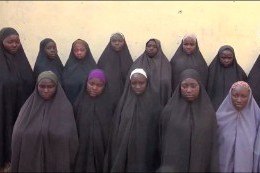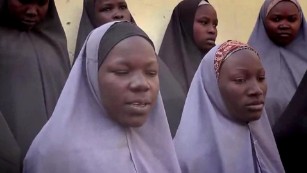Most of the 278 girls kidnapped from their school dorm in Nigeria two years ago by Boko Haram, are still missing. When the news was first released, it caused global outrage and protests…
That footage that broke hearts around the world, underlining the ongoing suffering of the Chibok mothers — and the unimaginable plight faced by their daughters.
From protesters marching in Nigerian cities to social media users in distant countries raising their voices, the story stirred fresh outpourings of anger and frustration. Anger at the atrocity itself, but also at the official response. How was it that two years after Boko Haram kidnapped 276 girls from their school dormitory, the Nigerian government and the global community — which had expressed so resolutely its determination to #bringbackourgirls — had failed to rescue the 219 still missing?








Freedom United is interested in hearing from our community and welcomes relevant, informed comments, advice, and insights that advance the conversation around our campaigns and advocacy. We value inclusivity and respect within our community. To be approved, your comments should be civil.